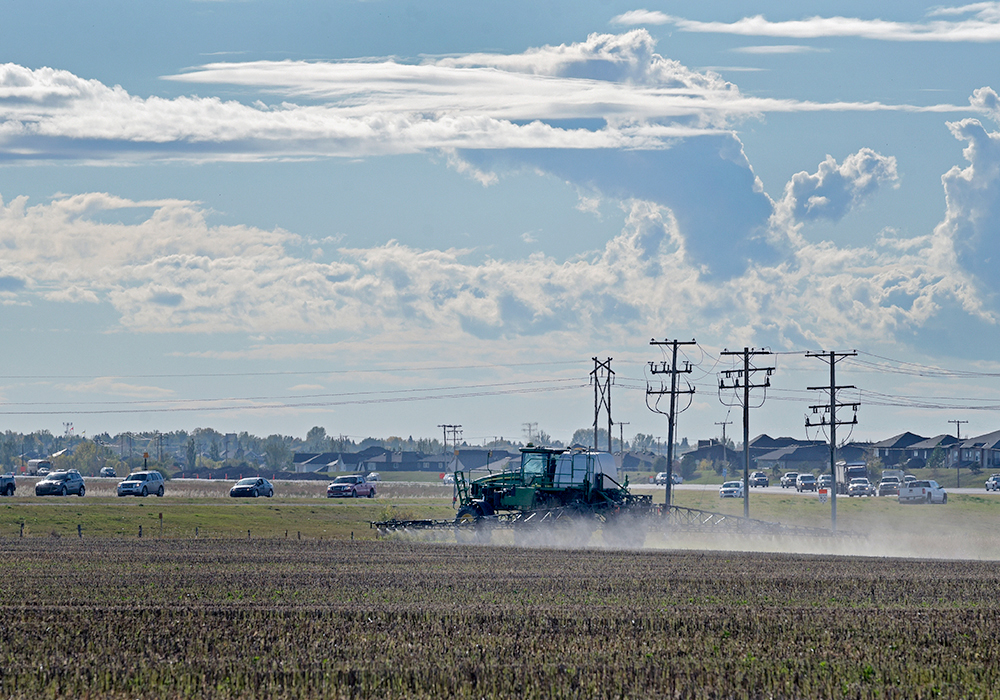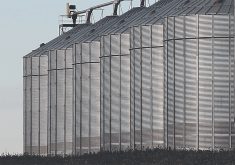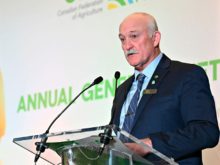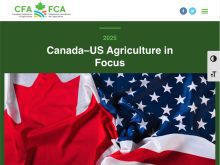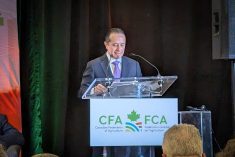A pollster says suburban voters hold significant sway in federal elections and could advance producer interests if they knew what they were
OTTAWA — Farmers should build alliances with suburban voters if they want stronger political representation in the House of Commons, says a leading pollster.
Darrell Bricker, global chief executive officer of Ipsos Public Affairs, told delegates to the Canadian Federation of Agriculture annual meeting that suburban voters hold the greatest voting power.
“They decide every election now and increasingly will be a dominant voice,” he said during a panel on geopolitical issues.
In an interview, he said current voting maps indicate that if an election were to be held tomorrow, “it certainly isn’t painting the town red.”
Read Also
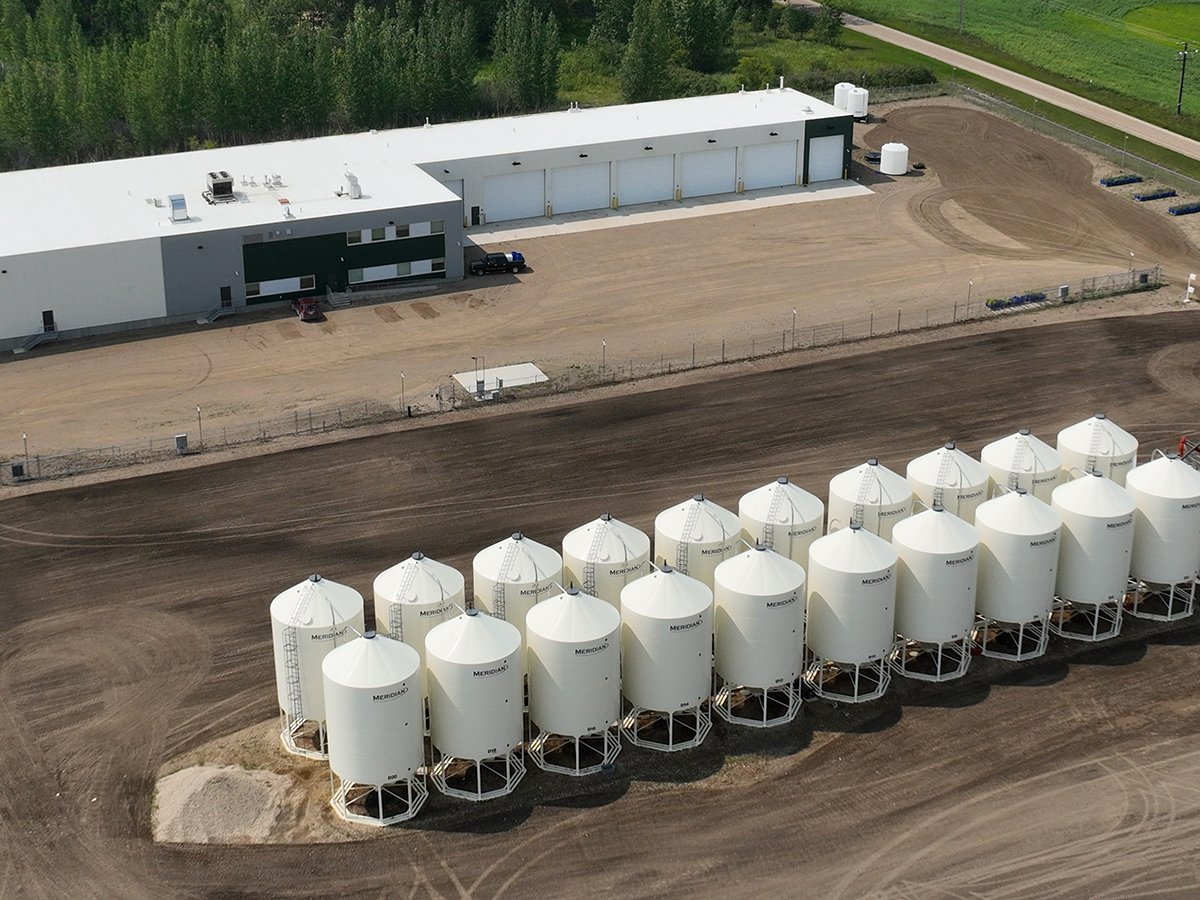
Saskatchewan firm aims to fix soil with compost pellets
In his business, Humaterra, Leon Pratchler is helping farmers maximize yields in the weakest areas of their fields through the use of a compost pellet.
Current polls project a Conservative majority. A federal election could be held at any time if the NDP no longer agrees to prop up the minority Liberals. However, it is scheduled for Oct. 20, 2025.
Bricker said famers want governments to listen to them and consider them a priority, and they don’t think those in power right now do either of those.
Instead, the government has a downtown agenda oriented toward climate change and how farmers should change.
Aligning with the suburbs could help.
“Elections swing to the progressive side if the suburbs unite with downtown and they swing to the conservative side if the suburbs unite with rural and small town Canada, so the swing vote is the suburbs, that’s what you need,” Bricker said.
Rural Canada doesn’t have enough seats to swing an election on its own and needs allies.
Bricker said even holding farmers markets in suburban areas, rather than downtown in cities, could help educate those voters about farming and rural issues.
Right now, they are worried about the cost of living and housing, and while the Liberals are somewhat addressing those, many voters consider it to be too little, too late, he said.
“We’re moving into what’s called a change election. Over 70 percent of Canadian voters now feel that another party needs to be given a chance to govern the country. So the government is really desperately trying to fight back against that, and trying to orient itself more towards the issues that I just mentioned. The question is, will it be enough? And at this point it doesn’t seem to be,” he said.
There also isn’t a lot of time to persuade voters it is paying attention.
Bricker added farmers and farm lobbies should be aware of public opinion even if it isn’t specifically related to their industry.
“If you’re keeping that in mind whenever you’re thinking about your policy demands and you’re thinking about how you can communicate with Canadians, that can only help you,” he said.
“It’s really less about trying to convince people about things and trying to take what you are interested in and aligning it with what Canadians are already thinking.
“The other thing is, familiarity breeds support. The more the farm community can connect particularly with the suburbs, the better it will be for the farm community.”
CFA delegates also heard from federal politicians during the meeting.
Agriculture minister Lawrence MacAulay deferred to the finance minister when asked if he could ensure the interest-free portion of the Advance Payment Program stays at $350,000 rather than reverting to $100,000.
The program offers up to $1 million, and the interest-free portion rose in the last few years to deal with challenging circumstances such as the pandemic, extreme weather and global unrest.
“That helps. I used that when I was a farmer myself,” he said.
However, Ontario Federation of Agriculture delegate Ethan Wallace noted that the $350,000 no longer applied.
“It is currently back to $100,000. Can you or your government commit to putting that limit back to the $350,000?” he asked.
MacAulay replied: “Perhaps the government can. I can’t.”
During his remarks he noted he was a “re-run” minister, after serving in the portfolio from 2015 to 2019 and re-appointed in July 2023.
He didn’t make any promises, saying he would like to increase federal agriculture spending but adding the government can’t pay everything.
Delegates had earlier heard from Robert Bonnie, the U.S. Department of Agriculture’s undersecretary for farm production and conservation, talk about the $19.5 billion over five years the United States is spending on climate smart agriculture.
“I know the environmental programs are quite difficult at first, but quite simply if you have massive storms, like we had in P.E.I. … what we have to do is create some stability but also make sure we work with farmers,” MacAulay said.
“We can never provide everything you need, but I think with the Sustainable Agriculture Strategy, through the years we’ll hopefully work to make sure that farmers feel that they have a bigger input (in terms of costing).”
Bloc Quebecois agriculture critic Yves Perron said he didn’t know the APP $100,000 limit was back in place.
“It has to be $350,000,” he said during his speech.
“It has to be kept at that level.”
Conservative agriculture critic John Barlow said he also didn’t know until farm organizations began contacting him.
He said he wouldn’t bet the farm on the decision being reversed in the upcoming budget.
Meanwhile, delegates also raised Bill C-234 and asked speakers if they support the amended version of the bill, which leaves farm buildings and greenhouses out of any possible carbon tax exemption.
Perron said his party supports passing the amended version because at least grain drying will be covered.
The Conservatives and NDP prefer the original bill.
“We intend to reject the Senate amendments to it,” said NDP critic Alistair MacGregor to applause.
However, with BQ support, the Liberal government can pass the amended bill whenever the matter comes to a vote.
Barlow said debate on the bill will end at some point when the parties stop putting up speakers and it goes to a vote.
He agreed it’s likely to pass as is because there aren’t enough votes to reverse it.
“Obviously we want to see it pass unamended ,so we are working very hard to get the Bloc back on side, but as you heard from Mr. Perron today, that doesn’t look like it’s going to happen,” he said in an interview.
“Our problem is we’re running out of time. We could try and table another bill to bring in the heating and cooling of barns and the greenhouses, but there just isn’t enough time in this Parliament to get it passed.”
He said the Bloc has not tied support for C-234 to C-282, its bill to protect supply management during trade negotiations.
“I just believe there is a large portion of the Bloc that are very staunch environmental activists and do not want to lose the carbon pricing,” Barlow said, which affects their support for policies that are good for farmers.
Although Quebec is not part of the federal carbon pricing system, he said farmers import propane from Ontario so do pay the tax.


